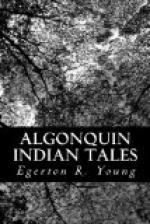The day was one of unusual quietness, as the lively pair, who generally kept the house full of music, were now supposed to be away in humiliation and disgrace. All regretted that the punishment had to be inflicted and the children made to realize their naughtiness in thus running away, and all were looking forward to the hour of six o’clock with pleasant anticipation. When it arrived word was sent to the children that their hours of imprisonment were over, and that they were to present themselves in the library. Quick and prompt was the response, and noisily and hurriedly the two darlings came rushing down the stairs, followed by Mary. They were arrayed in their most beautiful apparel, and were evidently prepared by their nurse to go with her for a walk.
The father, feeling that it was necessary, began to make a few remarks expressive of regret that he had thus been obliged to punish them, when he was interrupted by little Sagastao with the honest and candid remark, spoken in a way which, while perfectly fearless, was yet devoid of all rudeness or impertinence:
“O, father dear, you needn’t feel badly about us at all, as Mary has been with us all day and has told us lovely stories.”
“And Mary brought us taffy candy,” broke in darling Minnehaha, with equal candor; “and some currant cakes and other nice things, so we got on very well after all.”
These candid utterances on the part of the two children not only amazed but amused the parents, and were another revelation of Mary’s wonderful love for the children and her defiance of disciplinary measures which she thought might cause the slightest pain or sorrow. And here she stood in the open door, and as soon as their father’s words and their own rather startling “confessions” were ended she called them to her and away they went for a long walk along the beautiful shore of the lake, leaving their parents to conjecture whether the punishment that had been inflicted would produce any very salutary results.
When the children were gathered that evening in the study with their parents little Sagastao said:
“Papa, Minnehaha and I have been talking it all over with Mary and she has shown us that it was naughty on our parts to run away as we did; and we are sorry that we did anything that caused you and mamma sorrow and anxiety about us, and so, ... Well, we know you will forgive us.” And as the four little arms went twining around the parents’ necks there was joy and gladness all round, and it was evident that there was no danger of the escapade being repeated.




